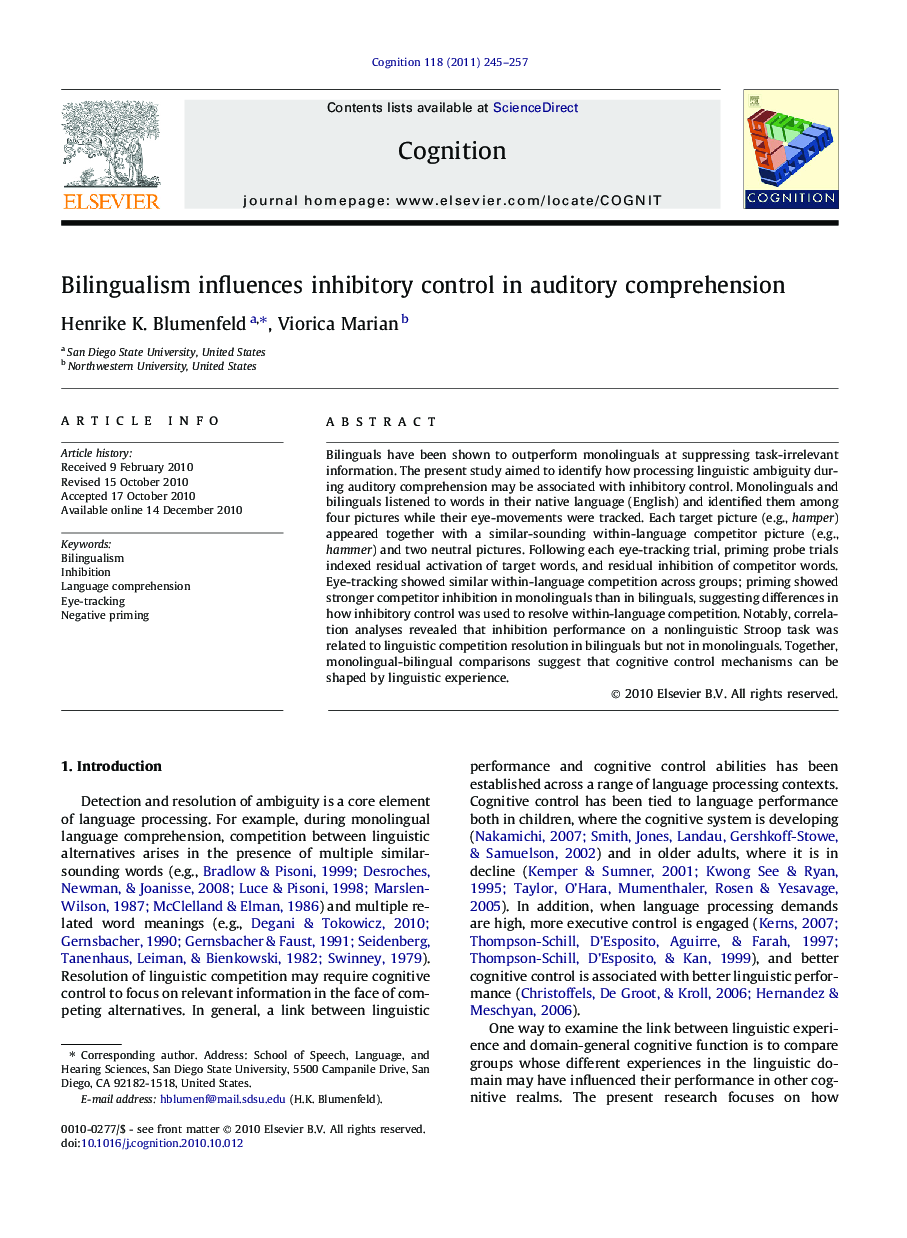| Article ID | Journal | Published Year | Pages | File Type |
|---|---|---|---|---|
| 10457937 | Cognition | 2011 | 13 Pages |
Abstract
Bilinguals have been shown to outperform monolinguals at suppressing task-irrelevant information. The present study aimed to identify how processing linguistic ambiguity during auditory comprehension may be associated with inhibitory control. Monolinguals and bilinguals listened to words in their native language (English) and identified them among four pictures while their eye-movements were tracked. Each target picture (e.g., hamper) appeared together with a similar-sounding within-language competitor picture (e.g., hammer) and two neutral pictures. Following each eye-tracking trial, priming probe trials indexed residual activation of target words, and residual inhibition of competitor words. Eye-tracking showed similar within-language competition across groups; priming showed stronger competitor inhibition in monolinguals than in bilinguals, suggesting differences in how inhibitory control was used to resolve within-language competition. Notably, correlation analyses revealed that inhibition performance on a nonlinguistic Stroop task was related to linguistic competition resolution in bilinguals but not in monolinguals. Together, monolingual-bilingual comparisons suggest that cognitive control mechanisms can be shaped by linguistic experience.
Related Topics
Life Sciences
Neuroscience
Cognitive Neuroscience
Authors
Henrike K. Blumenfeld, Viorica Marian,
